Fleurs du Mal Magazine


Or see the index
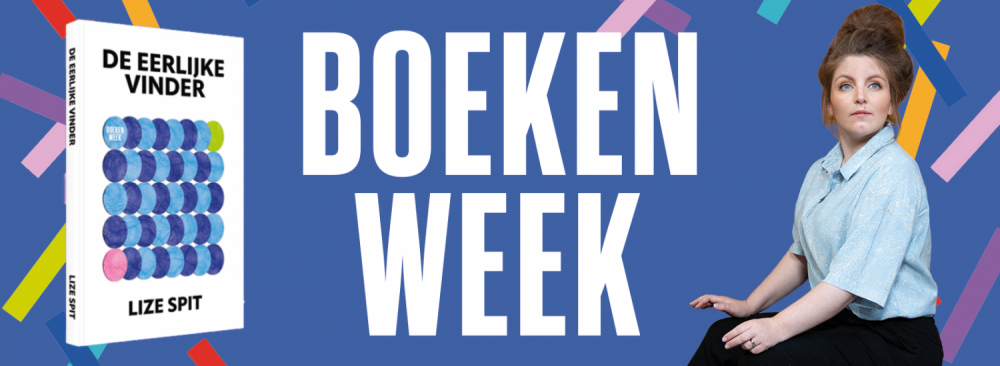
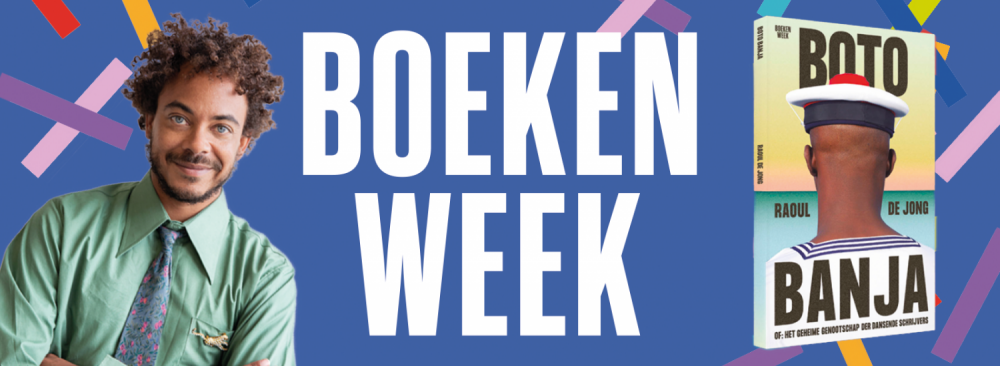
More in: - Audiobooks, - Book Lovers, - Book News, - Book Stories, - Bookstores, AUDIO, CINEMA, RADIO & TV, Boekenweek, The Art of Reading
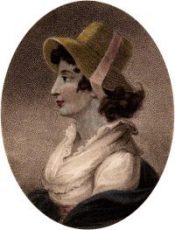
The Rights of Women
Yes, injured Woman! rise, assert thy right!
Woman! too long degraded, scorned, opprest;
O born to rule in partial Law’s despite,
Resume thy native empire o’er the breast!
Go forth arrayed in panoply divine;
That angel pureness which admits no stain;
Go, bid proud Man his boasted rule resign,
And kiss the golden sceptre of thy reign.
Go, gird thyself with grace; collect thy store
Of bright artillery glancing from afar;
Soft melting tones thy thundering cannon’s roar,
Blushes and fears thy magazine of war.
Thy rights are empire: urge no meaner claim,—
Felt, not defined, and if debated, lost;
Like sacred mysteries, which withheld from fame,
Shunning discussion, are revered the most.
Try all that wit and art suggest to bend
Of thy imperial foe the stubborn knee;
Make treacherous Man thy subject, not thy friend;
Thou mayst command, but never canst be free.
Awe the licentious, and restrain the rude;
Soften the sullen, clear the cloudy brow:
Be, more than princes’ gifts, thy favours sued;—
She hazards all, who will the least allow.
But hope not, courted idol of mankind,
On this proud eminence secure to stay;
Subduing and subdued, thou soon shalt find
Thy coldness soften, and thy pride give way.
Then, then, abandon each ambitious thought,
Conquest or rule thy heart shall feebly move,
In Nature’s school, by her soft maxims taught,
That separate rights are lost in mutual love.
Anna Laetitia Barbauld
(1743 – 1825)
The Rights of Women
Anna Laetitia Barbauld wrote this poem in 1793,
in response to Mary Wollstonecraft’s ‘A Vindication of the Rights of Woman´.
• fleursdumal.nl magazine
More in: # Classic Poetry Archive, Archive A-B, Archive A-B, Feminism, The Ideal Woman
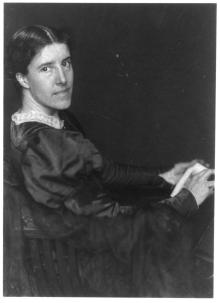
Women Do Not Want It
When the woman suffrage argument first stood upon its legs,
They answered it with cabbages, they answered it with eggs,
They answered it with ridicule, they answered it with scorn,
They thought it a monstrosity that should not have been born.
When the woman suffrage argument grew vigorous and wise,
And was not to be answered by these opposite replies,
They turned their opposition into reasoning severe
Upon the limitations of our God-appointed sphere.
We were told of disabilities–a long array of these,
Till one could think that womanhood was merely a disease;
And “the maternal sacrifice” was added to the plan
Of the various sacrifices we have always made–to man.
Religionists and scientists, in amity and bliss,
However else they disagreed, could all agree on this,
And the gist of all their discourse, when you got down in it,
Was–we could not have the ballot because we were not fit!
They would not hear the reason, they would not fairly yield,
They would not own their arguments were beaten in the field;
But time passed on, and someway, we need not ask them how,
Whatever ails those arguments–we do not hear them now!
You may talk of suffrage now with an educated man,
And he agrees with all you say, as sweetly as he can:
‘T would be better for us all, of course, if womanhood was free;
But “the women do not want it”–and so it must not be!
‘T is such a tender thoughtfulness! So exquisite a care!
Not to pile on our frail shoulders what we do not wish to bear!
But, oh, most generous brother! Let us look a little more–
Have we women always wanted what you gave to us before?
Did we ask for veils and harems in the Oriental races?
Did we beseech to be “unclean,” shut out of sacred places?
Did we beg for scolding bridles and ducking stools to come?
And clamour for the beating stick no thicker than your thumb?
Did we ask to be forbidden from all the trades that pay?
Did we claim the lower wages for a man’s full work today?
Have we petitioned for the laws wherein our shame is shown:
That not a woman’s child–nor her own body–is her own?
What women want has never been a strongly acting cause,
When woman has been wronged by man in churches, customs, laws;
Why should he find this preference so largely in his way,
When he himself admits the right of what we ask today?
Charlotte Perkins Gilman
(1860-1935)
Women Do Not Want It
Suffrage Songs and Verses
• fleursdumal.nl magazine
More in: #Editors Choice Archiv, Archive O-P, Archive O-P, Feminism, The Ideal Woman
Ein solches Buch hat es noch nie gegeben.
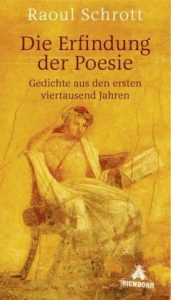 Dass die Poesie eine alte Erfindung ist, ahnen wir; aber die wenigsten von uns wären imstande, die Spur der europäischen Dichtung bis an ihre Ursprünge zurückzuverfolgen.
Dass die Poesie eine alte Erfindung ist, ahnen wir; aber die wenigsten von uns wären imstande, die Spur der europäischen Dichtung bis an ihre Ursprünge zurückzuverfolgen.
Sie führt weit, bis ins Zweistromland, bis zu den Arabern, den Kelten und den Sizilianern. Wer wüßte schon, daß der älteste überlieferte Dichtername einer Frau gehört?
Wer kennt noch die wilden Lieder des Archilochos, den die Griechen die Skorpionzunge nannten?
Und so weiter – über Sappho und die römischen Elegiker Catull und Properz bis zu den Iren des achten, den Hebräern des elften, den Trobadors des zwölften und den Walisern des vierzehnten Jahrhunderts.
Raoul Schrott ist 1964 in Landeck geboren. Seine bisherigen Publikationen sind: Dada 21/22 (1988); Makama (1989); Die Legenden vom Tod (1990); Rime (1991); Dada 15/25 (1992); Sub rosa (1993); Hotels (1995); Finis terrae (1995), Die Musen. Fragmente einer Sprache der Dichtung (1997) und Poesie und Physis – Grazer Poetikvorlesungen (1997).
Schrott, Raoul
Die Erfindung der Poesie
Die Andere Bibliothek u.a.
Seitenanzahl: 536
Extradrucke
Bandnummer: 154
ISBN: 9783821847702
ca. 45,00 EUR (antiquarisch)
• fleursdumal.nl magazine
More in: - Book Lovers, - Bookstores, Archive S-T, The Art of Reading
A tender and compellling memoir of the author’s grandparents, their literary salon, and a way of life that is no more.
The House of Twenty Thousand Books is the story of Chimen Abramsky, an extraordinary polymath and bibliophile who amassed a vast collection of socialist literature and Jewish history. For more than fifty years Chimen and his wife, Miriam, hosted epic gatherings in their house of books that brought together many of the age’s greatest thinkers.
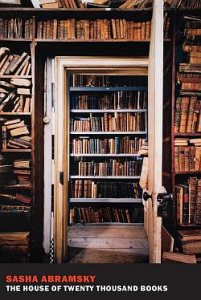 The atheist son of one of the century’s most important rabbis, Chimen was born in 1916 near Minsk, spent his early teenage years in Moscow while his father served time in a Siberian labor camp for religious proselytizing, and then immigrated to London, where he discovered the writings of Karl Marx and became involved in left-wing politics.
The atheist son of one of the century’s most important rabbis, Chimen was born in 1916 near Minsk, spent his early teenage years in Moscow while his father served time in a Siberian labor camp for religious proselytizing, and then immigrated to London, where he discovered the writings of Karl Marx and became involved in left-wing politics.
He briefly attended the newly established Hebrew University in Jerusalem, until World War II interrupted his studies.
Back in England, he married, and for many years he and Miriam ran a respected Jewish bookshop in London’s East End. When the Nazis invaded Russia in June 1941, Chimen joined the Communist Party, becoming a leading figure in the party’s National Jewish Committee. He remained a member until 1958, when, shockingly late in the day, he finally acknowledged the atrocities committed by Stalin. In middle age, Chimen reinvented himself once more, this time as a liberal thinker, humanist, professor, and manuscripts’ expert for Sotheby’s auction house.
Journalist Sasha Abramsky re-creates here a lost world, bringing to life the people, the books, and the ideas that filled his grandparents’ house, from gatherings that included Eric Hobsbawm and Isaiah Berlin to books with Marx’s handwritten notes, William Morris manuscripts and woodcuts, an early sixteenth-century Bomberg Bible, and a first edition of Descartes’s Meditations. The House of Twenty Thousand Books is a wondrous journey through our times, from the vanished worlds of Eastern European Jewry to the cacophonous politics of modernity.
The Book includes 43 photos.
“Sasha Abramsky’s account of his grandfather’s devotion to books and reading is a moving testimonial to the persistance of human curiosity in a world that seems to drift farther and farther from the delight of intellectual pursuits. It is a moving, instructive, astonishing account of one man’s love for the printed word that all readers will appreciate. The House of Twenty Thousand Books deserves twenty hundred thousand readers.”
— Alberto Manguel
Sasha Abramsky was born and raised in the UK, studied politics, philosophy and economics at Balliol College, Oxford, and moved to the US in my early 20s. He has lived and worked in London, New York, and in California. His writings have been published in the Nation magazine, the New Yorker online, the New York Times, Atlantic, Mother Jones, Truthout, Sacramento Magazine, Slate, Salon, and many other publications in the US. In the UK he has written for a number of publications, including the Guardian, the Observer, the Sunday Telegraph, and the New Statesman.
The House of Twenty Thousand Books
by Sasha Abramsky, with a new preface by the author
Publisher: New York Review Books
Reprint edition 2017
Language: English
Paperback
376 pages
ISBN-10: 1681371138
ISBN-13: 978-1681371139
$17.95
• fleursdumal.nl magazine
More in: #Biography Archives, - Book Lovers, - Book Stories, Alberto Manguel, Archive A-B, Libraries in Literature, Literaire sporen, The Art of Reading
Benjamin Heisenbergs Roman «Lukusch» ist eine wilde und witzige Fahrt durch die unfassbare Geschichte des jungen Schachtalents Anton Lukusch und seines grobschlächtigen Sidekicks Igor.
 Klug und lässig zugleich spielt dieser Roman mit den Möglichkeiten des Erzählens und sprengt dabei seine eigenen Grenzen.
Klug und lässig zugleich spielt dieser Roman mit den Möglichkeiten des Erzählens und sprengt dabei seine eigenen Grenzen.
Anton Lukusch war ein ganz normaler Junge aus Prypjat – bis zur Reaktorkatastrophe von Tschernobyl 1986. Gemeinsam mit anderen Kindern wird er von der Hilfsorganisation Shelta nach Westdeutschland gebracht, um der hohen Strahlenbelastung zu entkommen.
Dort beginnt für ihn ein ganz neues Leben: Durch Zufall wird Lukuschs analytisches Talent beim Schachspielen entdeckt. Ein Überflieger, ein Wunderkind – die Bundesrepublik jubelt! Vor den Augen der Öffentlichkeit gewinnt er eine Partie gegen Bundeskanzler Helmut Kohl, knackt ein scheinbar unlösbares Rätsel bei Wetten, dass … und wird sogar von internationalen Konzernen als Berater verpflichtet.
Ihn selbst scheint seine spektakuläre Erfolgsgeschichte kaum zu interessieren. Wie ferngesteuert löst Anton alle ihm gestellten Aufgaben, lächelt brav in die Kameras und lässt sich von seinem Umfeld herumreichen wie ein teures Spielzeug, mit dem man im Scheinwerferlicht glänzen kann. Ist dieser Junge wirklich «nur» ein herausragendes Talent, und was hat es mit seinem ständigen Schatten Igor auf sich? Antons spurloses Verschwinden ist nur der Anfang höchst kurioser Entwicklungen …
Benjamin Heisenberg, geboren 1974 in Tübingen, arbeitet als Regisseur, Autor und bildender Künstler. Seine Arbeiten erhielten namhafte Auszeichnungen.
Heisenberg, Benjamin
Lukusch
Roman
Publisher: C.H.Beck; 1st edition
15 Sept. 2022
Language: German
Hardcover: 270 pages
ISBN-10: 340679095X
ISBN-13: 978-3406790959
Dimensions: 14.2 x 2.6 x 21.9 cm
€25.00
• fleursdumal.nl magazine
More in: - Book News, - Bookstores, Archive G-H, Chess in literature
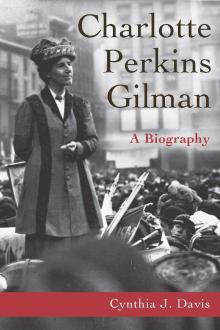
The Anti-Sufragists
Fashionable women in luxurious homes,
With men to feed them, clothe them, pay their bills,
Bow, doff the hat, and fetch the handkerchief;
Hostess or guest; and always so supplied
With graceful deference and courtesy;
Surrounded by their horses, servants, dogs–
These tell us they have all the rights they want.
Successful women who have won their way
Alone, with strength of their unaided arm,
Or helped by friends, or softly climbing up
By the sweet aid of “woman’s influence”;
Successful any way, and caring naught
For any other woman’s unsuccess–
These tell us they have all the rights they want.
Religious women of the feebler sort–
Not the religion of a righteous world,
A free, enlightened, upward-reaching world,
But the religion that considers life
As something to back out of !– whose ideal
Is to renounce, submit, and sacrifice.
Counting on being patted on the head
And given a high chair when they get to heaven–
These tell us they have all the rights they want.
Ignorant women–college bred sometimes,
But ignorant of life’s realities
And principles of righteous government,
And how the privileges they enjoy
Were won with blood and tears by those before–
Those they condemn, whose ways they now oppose;
Saying, “Why not let well enough alone?”
Our world is very pleasant as it is”–
These tell us they have all the rights they want.
And selfish women–pigs in petticoats–
Rich, poor, wise, unwise, top or bottom round,
But all sublimely innocent of thought,
And guiltless of ambition, save the one
Deep, voiceless aspiration–to be fed!
These have no use for rights or duties more.
Duties today are more than they can meet,
And law insures their right to clothes and food–
These tell us they have all the rights they want.
And, more’s the pity, some good women too;
Good, conscientious women with ideas;
Who think–or think they think–that woman’s cause
Is best advanced by letting it alone;
That she somehow is not a human thing,
And not to be helped on by human means,
Just added to humanity–an “L”–
A wing, a branch, an extra, not mankind–
These tell us they have all the rights they want.
And out of these has come a monstrous thing,
A strange, down-sucking whirlpool of disgrace,
Women uniting against womanhood,
And using that great name to hide their sin!
Vain are their words as that old king’s command
Who set his will against the rising tide.
But who shall measure the historic shame
Of these poor traitors–traitors are they all–
To great Democracy and Womanhood!
Charlotte Perkins Gilman
(1860-1935)
The Anti-Sufragists
Suffrage Songs and Verses
• fleursdumal.nl magazine
More in: #Editors Choice Archiv, Archive O-P, Archive O-P, Feminism, The Ideal Woman
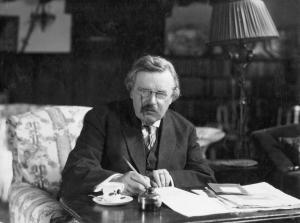
A Fairy Tale
All things grew upwards, foul and fair:
The great trees fought and beat the air
With monstrous wings that would have flown;
But the old earth clung to her own,
Holding them back from heavenly wars,
Though every flower sprang at the stars.
But he broke free: while all things ceased,
Some hour increasing, he increased.
The town beneath him seemed a map,
Above the church he cocked his cap,
Above the cross his feather flew
Above the birds and still he grew.
The trees turned grass; the clouds were riven;
His feet were mountains lost in heaven;
Through strange new skies he rose alone,
The earth fell from him like a stone,
And his own limbs beneath him far
Seemed tapering down to touch a star.
He reared his head, shaggy and grim,
Staring among the cherubim;
The seven celestial floors he rent,
One crystal dome still o’er him bent:
Above his head, more clear than hope,
All heaven was a microscope.
G. K. Chesterton
(1874-1936)
A Fairy Tale
• fleursdumal.nl magazine
More in: Archive C-D, Chesterton, Gilbert Keith, G.K. Chesterton, Grimm, Andersen e.o.: Fables, Fairy Tales & Stories

Jack And The Bean-Stalk
A lazy and careless boy was Jack,–
He would not work, and he would not play;
And so poor, that the jacket on his back
Hung in a ragged fringe alway;
But ’twas shilly-shally, dilly-dally,
From day to day.
At last his mother was almost wild,
And to get them food she knew not how;
And she told her good-for-nothing child
To drive to market the brindle cow.
So he strolled along, with whistle and song,
And drove the cow.
A man was under the wayside trees,
Who carried some beans in his hand–all white.
He said, “My boy, I’ll give you these
For the brindle cow.” Jack said, “All right.”
And, without any gold for the cow he had sold,
Went home at night.
Bitter tears did the mother weep;
Out of the window the beans were thrown,
And Jack went supperless to sleep;
But, when the morning sunlight shone,
High, and high, to the very sky,
The beans had grown.
They made a ladder all green and bright,
They twined and crossed and twisted so;
And Jack sprang up it with all his might,
And called to his mother down below:
“Hitchity-hatchet, my little red jacket,
And up I go!”
High as a tree, then high as a steeple,
Then high as a kite, and high as the moon,
Far out of sight of cities and people,
He toiled and tugged and climbed till noon;
And began to pant: “I guess I shan’t
Get down very soon!”
At last he came to a path that led
To a house he had never seen before;
And he begged of a woman there some bread;
But she heard her husband, the Giant, roar,
And she gave him a shove in the old brick oven,
And shut the door.
And the Giant sniffed, and beat his breast,
And grumbled low, “Fe, fi, fo, fum!”
His poor wife prayed he would sit and rest,–
“I smell fresh meat! I will have some!”
He cried the louder, “Fe, fi, fo, fum!
I will have some.”
He ate as much as would feed ten men,
And drank a barrel of beer to the dregs;
Then he called for his little favorite hen,
As under the table he stretched his legs,–
And he roared “Ho! ho!”–like a buffalo–
“Lay your gold eggs!”
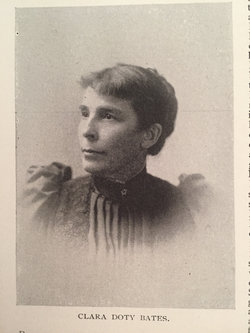
She laid a beautiful egg of gold;
And at last the Giant began to snore;
Jack waited a minute, then, growing bold,
He crept from the oven along the floor,
And caught the hen in his arms, and then
Fled through the door.
But the Giant heard him leave the house,
And followed him out, and bellowed “Oh-oh!”
But Jack was as nimble as a mouse,
And sang as he rapidly slipped below:
“Hitchity-hatchet, my little red jacket,
And down I go!”
And the Giant howled, and gnashed his teeth.
Jack got down first, and, in a flash,
Cut the ladder from underneath;
And Giant and Bean-stalk, in one dash,–
No shilly-shally, no dilly-dally,–
Fell with a crash.
This brought Jack fame, and riches, too;
For the little gold-egg hen would lay
An egg whenever he told her to,
If he asked one fifty times a day.
And he and his mother lived with each other
In peace alway.
Clara Doty Bates
(1838 – 1895)
Jack And The Bean-Stalk
Versified by Mrs. Clara Doty Bates
fleursdumal.nl magazine
More in: Archive A-B, Archive A-B, Bates, Clara Doty, Children's Poetry, Grimm, Andersen e.o.: Fables, Fairy Tales & Stories, Tales of Mystery & Imagination
A revelatory new portrait of the courageous woman who saved Dostoyevsky’s life—and became a pioneer in Russian literary history
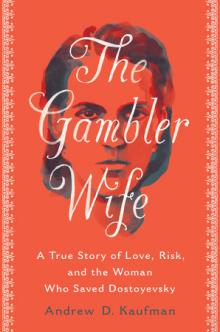 In the fall of 1866, a twenty-year-old stenographer named Anna Snitkina applied for a position with a writer she idolized: Fyodor Dostoyevsky. A self-described “emancipated girl of the sixties,” Snitkina had come of age during Russia’s first feminist movement, and Dostoyevsky—a notorious radical turned acclaimed novelist—had impressed the young woman with his enlightened and visionary fiction.
In the fall of 1866, a twenty-year-old stenographer named Anna Snitkina applied for a position with a writer she idolized: Fyodor Dostoyevsky. A self-described “emancipated girl of the sixties,” Snitkina had come of age during Russia’s first feminist movement, and Dostoyevsky—a notorious radical turned acclaimed novelist—had impressed the young woman with his enlightened and visionary fiction.
Yet in person she found the writer “terribly unhappy, broken, tormented,” weakened by epilepsy, and yoked to a ruinous gambling addiction. Alarmed by his condition, Anna became his trusted first reader and confidante, then his wife, and finally his business manager—launching one of literature’s most turbulent and fascinating marriages.
The Gambler Wife offers a fresh and captivating portrait of Anna Dostoyevskaya, who reversed the novelist’s freefall and cleared the way for two of the most notable careers in Russian letters—her husband’s and her own. Drawing on diaries, letters, and other little-known archival sources, Andrew Kaufman reveals how Anna warded off creditors, family members, and her greatest romantic rival, keeping the young family afloat through years of penury and exile.
In a series of dramatic set pieces, we watch as she navigates the writer’s self-destructive binges in the casinos of Europe—even hazarding an audacious turn at roulette herself—until his addiction is conquered. And, finally, we watch as Anna frees her husband from predatory contracts by founding her own publishing house, making Anna the first solo female publisher in Russian history.
The result is a story that challenges ideas of empowerment, sacrifice, and female agency in nineteenth-century Russia—and a welcome new appraisal of an indomitable woman whose legacy has been nearly lost to literary history.
Andrew D. Kaufman is an associate professor, General Faculty, lecturer in Slavic Languages and Literatures, and assistant director of the Center for Teaching Excellence at the University of Virginia. A PhD in Slavic languages and literatures from Stanford University, Kaufman is the author of Give War and Peace a Chance: Tolstoyan Wisdom for Troubled Times and Understanding Tolstoy, and a coauthor of Russian for Dummies. His work has been featured on Today, NPR, and PBS, and in The Washington Post, and he has served as a Russian literature expert for Oprah’s Book Club. Kaufman is the creator of Books Behind Bars, introducing incarcerated youth to the writings of Dostoyevsky and other authors.
The Gambler Wife:
A True Story of Love, Risk,
and the Woman Who Saved Dostoyevsky
by Andrew D. Kaufman
Publisher: Penguin Publishing Group
Publication date: 08/31/2021
Hardcover
Pages: 400
ISBN-13: 9780525537144
$30.00
• fleursdumal.nl magazine
More in: #Biography Archives, - Book News, - Book Stories, Archive K-L, Art & Literature News, The Ideal Woman
Die »Münchhausiade« von Karl Leberecht Immermann steht in einer langen Tradition: Sie ist die groteske Variante der Ur-Münchhausen-Legende aus dem 18. Jahrhundert, die von den Kriegs-, Jagd- und Reiseabenteuern des volkstümlichen Freiherrn von Münchhausen auf Bodenwerder fabuliert.

Immermann verwandelt die phantastischen Legenden des berühmten »Lügenbarons« zu einer in der deutschen Literatur bis dahin unbekannten Form des Romans: zeithistorisch, gesellschaftskritisch, komisch und scharf-satirisch, eine anspielungsreiche, schillernde Verbindung aus Zeit- und Kulturkritik. Immermanns Münchhausen erneuert den Roman seiner Zeit und ist eines der bedeutendsten epischen Werke der deutschen Literatur.
Karl Leberecht Immermann, heute fast vergessen, nimmt Abschied vom Bildungs- und Erziehungsroman der klassischen und romantischen Literatur. 1838/39 erschienen und nicht nur von Heinrich Heine bewundert, ist sein origineller Münchhausen eine virtuos verschlungene »Geschichte in Arabesken«.
Bei Immermann ist Münchhausen ein »Erzwindbeutel«, ein »Cäsar der Lügen« und ein »Don Juan der Erfindung « – einer, der in seinem Tun und Erzählen die Wahrheit beansprucht und den Leser, angesprochen und immer wieder ins Geschehen einbezogen, zur Wahrheitsfindung auffordert. Laurence Sternes komischer Roman Tristram Shandy ist dabei das große, vom Erzähler herbeizitierte Vorbild.
Münchhausen ist zugleich ein Doppelroman, der auch vom »Oberhof«, einem reichen westfälischen Gutshof, und vom Kosmos der damaligen ländlichen Lebenswelt erzählt; im Zentrum der »Hofschulze« und ein »Jäger Oswald« – die Gegenwelt zur verfallenden Welt des Adels, in der der Münchhausen-Enkel und sein Diener Karl Buttervogel vor dem Herrn von »Schloss Schnick-Schnack-Schnurr«, vor Tochter und Dorfschulmeister schwadronieren. Eingebunden wird das ausschweifende Geschehen in eine Ehe- und Liebesgeschichte, erzählt werden die ineinander verschlungenen Welten in einem Zeitraum von wenigen Wochen.
Und was bedeutet es, wenn Immermann von einer »Geschichte in Arabesken« spricht? »… wer dabei den Verstand behalten will, der muss einen weniger geordneten Kopf haben, als ich leider besitze. Herr von Münchhausen beginnen zu erzählen; dann fangen wieder andere Personen an, in diesen Erzählungen zu erzählen; wenn man nicht schleunigst Einhalt tut, so geraten wir wahrhaftig in eine Untiefe des Erzählens hinein, worin unser Verstand notwendig Schiffbruch leiden muss. Bei den Frauen, die mit Schachteln handeln, stecken oft vierundzwanzig ineinander …«
Karl Leberecht Immermann (1796–1840) studierte Rechtswissenschaft, pflegte literarische Interessen, nahm an den napoleonischen Kriegen teil und wurde 1818 Gerichtsreferendar in Magdeburg. In dieser Zeit schreibt er seine ersten Dramen, es folgen ein Roman, Gedichte und Trauerspiele. Als Landgerichtsrat geht er nach Düsseldorf und übernimmt die Leitung des Düsseldorfer Theaters. 1836 erscheinen Die Epigonen. Familienmemoiren in neun Büchern und 1838/39 Münchhausen. Eine Geschichte in Arabesken.
Karl Leberecht Immermann
Münchhausen.
Eine Geschichte in Arabesken
2021
Seitenanzahl: 852
Originalausgaben
Bandnummer: 435
Mit ausführlichen Anmerkungen und einem Nachwort von Tilman Spreckelsen. Originalausgabe, nummeriert und limitiert, Sondernummer zum Sonderpreis. Fadenheftung mit Lesebändchen, Dünndruckpapier. Umschlaggestaltung: Ute Henkel, Berlin
ISBN: 9783847704355
52,00 EUR
• fleursdumal.nl magazine
More in: - Book Lovers, - Book Stories, Archive I-J, Münchhausen, Tales of Mystery & Imagination
Een vader is een man die kinderen verwekt,’ antwoordde je toen ik er eens naar vroeg.
‘Wie heeft mij dan verwekt?’ wilde ik weten. Je pakte me bij mijn kin en keek me indringend aan.
‘We zijn niet op zoek naar een vader,’ zei je. ‘We zijn op zoek naar een prins.’
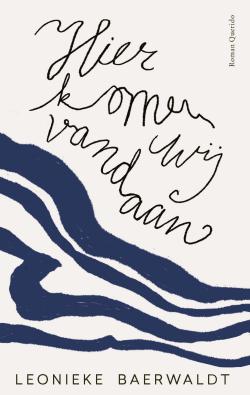
Hier komen wij vandaan –
Leonieke Baerwaldt
Een moeder en dochter leiden een zwervend bestaan, een fabrieksarbeider droomt erover een tropische-vissenwinkel te beginnen, twee geliefden besluiten samen een huis te bouwen en de kleine zeemeermin wordt geconfronteerd met de harde werkelijkheid.
In dit verhaal over diermensen en mensdieren vinden de sprookjes van Andersen en Grimm hun eigentijdse weerklank. Hier komen wij vandaan is een intens en bijzonder debuut van een verrassende nieuwe stem in de literatuur.
Auteur: Leonieke Baerwaldt
Titel: Hier komen wij vandaan
Vorm Paperback
Uitgever Querido
Druk 1e
Verschenen 24-08-2021
Taal Nederlands
Pagina’s 224 pp.
Genre Literaire fictie
NUR: 301
ISBN 9789021421278
Prijs: € 20,00
• fleursdumal.nl magazine
More in: - Book News, - Book Stories, Archive A-B, Grimm, Andersen e.o.: Fables, Fairy Tales & Stories, Tales of Mystery & Imagination
Thank you for reading Fleurs du Mal - magazine for art & literature